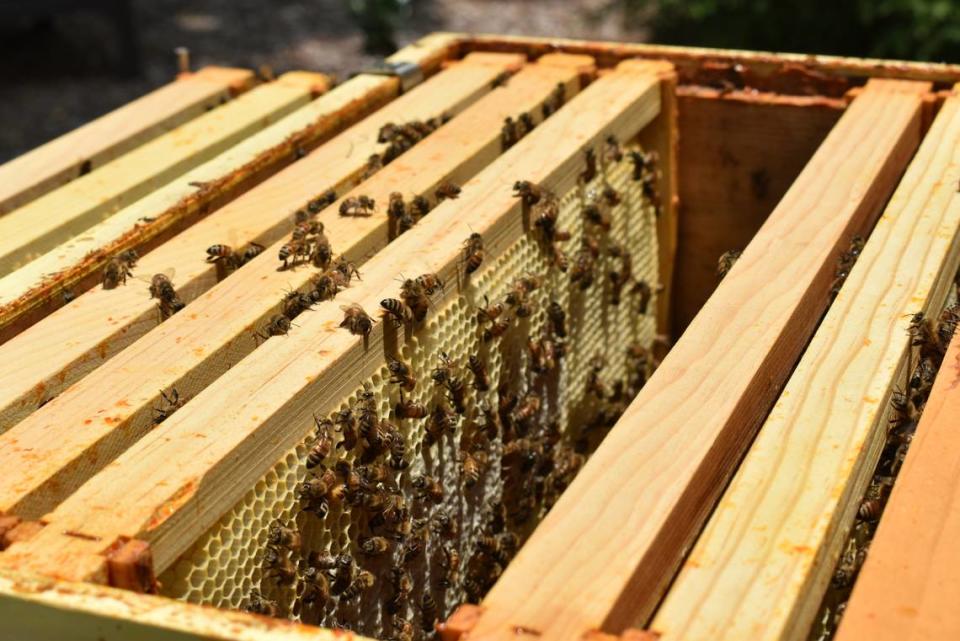Homeowner forced by HOA to move the hives in fight over backyard bees
She felt like there was no other option. With the threat of $100-per-day HOA fines looming, Matthews resident Dawn Reid has moved her three backyard beehives off her property.
“It’s not ideal, but I mean what choices do I have,” Reid said.
The Charlotte Observer reported Monday that Matthews calls itself a “Bee City,” but for the past month Reid has been pushing back against her neighborhood HOA that says the backyard hives break neighborhood rules.
NC town calls itself a ‘Bee City’ but HOA says backyard hives must go
The mayor of Matthews — who himself is a beekeeper — offered that Reid could put her hives in a community garden on town property. For now, the hives are with a friend.
“I think it’s unfortunate that a community doesn’t welcome bees, but I understand there were some issues,” Mayor John Higdon said.
Reid has owned her bees for three years. Issues first began last month.
In early July, one set of neighbors filed a complaint to the Pleasant Ridge HOA saying the bees had stung their puppy and were a “huge concern.”
Reid initially tried to move her three beehives to the opposite side of her yard, away from the neighbors. That move disrupted the bee colonies as bees have difficulty finding their hive if it is moved too far away.
“The bees are just dying,” Reid said.
And now, Reid has moved them again.
Earlier this week Reid received a notice in the mail that she would have to pay a fine of up to $100 per day for each day she is in violation of HOA rules. The HOA claims the bees are a violation of its no raising or keeping of animals clause.
It is unclear when the fines would start. Reid said she asked the HOA Board for clarity and received no response.
“They’ve just completely stopped talking to me,” she said.
A hearing is set to be held on August 10 at the HOA president’s house to discuss the issue.
Both the neighbor who filed the complaint and HOA president Kenneth Horn refused to be interviewed when initially reached by the Observer.
Reid said, though, that she couldn’t risk the fines. A beekeeping friend has taken in her dislocated hives.
NC law on keeping bees
Although Reid has lost her battle to keep her bees, she says she’s turned her sights to greater issues.
“Even if it’s over for me, the importance of public policy behind beekeeping and why we need them (bees) continues forward,” Reid said.
She said she plans to start a petition and lobby for an expansion of state protections for beekeepers. Currently the Honey Bee and Honey Act of 1977 offers some protections for small beekeepers, but it doesn’t apply to neighborhood HOAs.
Reid says she wants to change that and is seeking the help of pro bono legal assistance and community partners.
“I would love help,” she said. “This is so much bigger than me, and it’s going to take so much more than me.”
Bees are important for pollinating the fruits and vegetables that North Carolinians produce and consume.
“We’ve got to have pollination for the heavy agriculture that’s all over North Carolina,” N.C. Department of Agriculture apiary inspector Nancy Ruppert said.
For Reid, she says that she will miss the benefits the bees offered her garden yield. The hives have been about a $2,000 investment for her.

 Yahoo Finance
Yahoo Finance 


